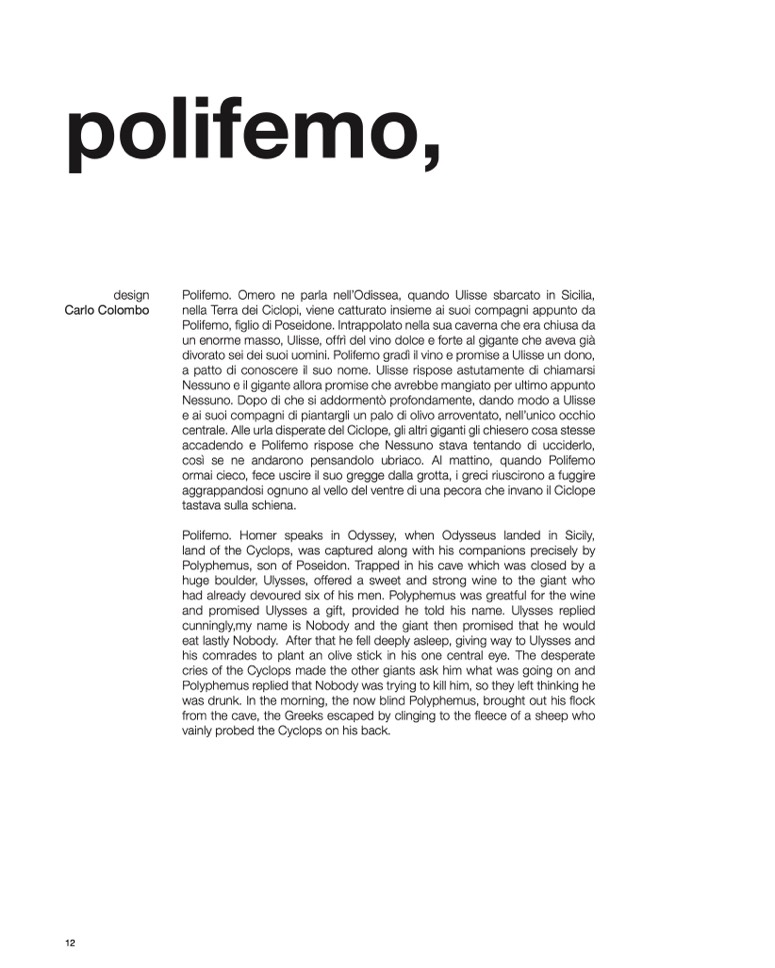
polifemo,
design
Carlo Colombo
Polifemo. Omero ne parla nell’Odissea, quando Ulisse sbarcato in Sicilia,
nella Terra dei Ciclopi, viene catturato insieme ai suoi compagni appunto da
Polifemo, figlio di Poseidone. Intrappolato nella sua caverna che era chiusa da
un enorme masso, Ulisse, offrì del vino dolce e forte al gigante che aveva già
divorato sei dei suoi uomini. Polifemo gradì il vino e promise a Ulisse un dono,
a patto di conoscere il suo nome. Ulisse rispose astutamente di chiamarsi
Nessuno e il gigante allora promise che avrebbe mangiato per ultimo appunto
Nessuno. Dopo di che si addormentò profondamente, dando modo a Ulisse
e ai suoi compagni di piantargli un palo di olivo arroventato, nell’unico occhio
centrale. Alle urla disperate del Ciclope, gli altri giganti gli chiesero cosa stesse
accadendo e Polifemo rispose che Nessuno stava tentando di ucciderlo,
così se ne andarono pensandolo ubriaco. Al mattino, quando Polifemo
ormai cieco, fece uscire il suo gregge dalla grotta, i greci riuscirono a fuggire
aggrappandosi ognuno al vello del ventre di una pecora che invano il Ciclope
tastava sulla schiena.
Polifemo. Homer speaks in Odyssey, when Odysseus landed in Sicily,
land of the Cyclops, was captured along with his companions precisely by
Polyphemus, son of Poseidon. Trapped in his cave which was closed by a
huge boulder, Ulysses, offered a sweet and strong wine to the giant who
had already devoured six of his men. Polyphemus was greatful for the wine
and promised Ulysses a gift, provided he told his name. Ulysses replied
cunningly,my name is Nobody and the giant then promised that he would
eat lastly Nobody. After that he fell deeply asleep, giving way to Ulysses and
his comrades to plant an olive stick in his one central eye. The desperate
cries of the Cyclops made the other giants ask him what was going on and
Polyphemus replied that Nobody was trying to kill him, so they left thinking he
was drunk. In the morning, the now blind Polyphemus, brought out his flock
from the cave, the Greeks escaped by clinging to the fleece of a sheep who
vainly probed the Cyclops on his back.
12

